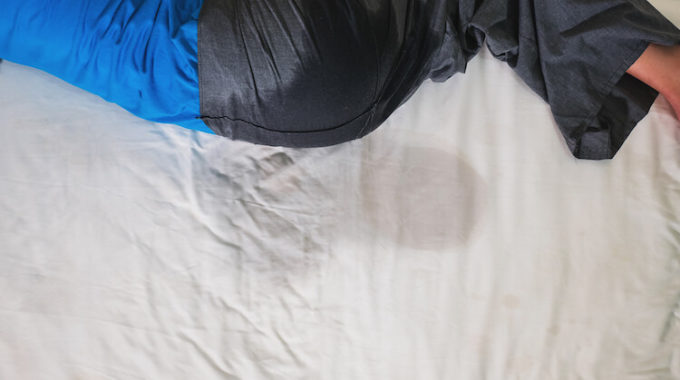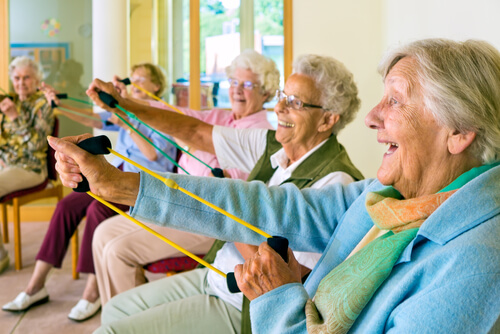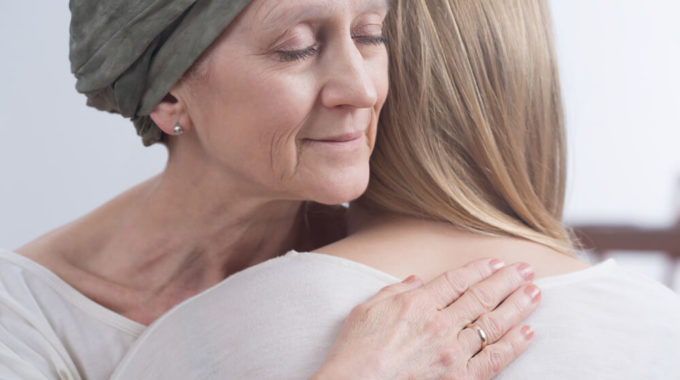
Adult Bedwetting: Causes, Treatments, and Management
It is a problem not readily acknowledged or discussed. Its official medical name is nocturnal enuresis; the layman’s term is adult bedwetting. For a two-year-old, bedwetting is a minor inconvenience during the course of toilet training. For an adult, it is a significant source of discomfort, stress, and anxiety.
What Causes Adult Bedwetting?
Nocturnal Enuresis is the involuntary release of urine during sleep. Medical professionals categorise it into two broad categories: primary persistent or recurrent, or secondary adult onset.
The available data reports that nighttime bedwetting in community-dwelling adults occurs at a rate of approximately 2.1 percent. In older adults, aged 75 years or more and living at home, the occurrence of nocturnal enuresis is about 2.4 percent. Based on these figures, it is reasonable to conclude that adult bedwetting is an uncommon problem. It does not, however, seem so unusual to those providing home health or hospice care services to the elderly.
The causes of adult bedwetting vary and may lack a definitive underlying anatomical or functional pathology. Some of the more common reasons include:
- Urinary tract infections (kidneys, bladder or both)
- Blockages, such as a kidney or bladder stone
- Diabetes
- Neurogenic bladder (neurological damage to the bladder)
- Hormonal imbalances
- Enlarged prostate in men
- Childbirth in women
- Sleep apnea
- Certain Cancers
- Side effects of medications
- Psychological factors (stress, anxiety, dementia)
- Alcohol abuse and dependence
There may be other causative elements triggering bedwetting while sleeping, but these are some of the most commonly known.
When to Consult a Doctor
It is important to remember that bedwetting is not a typical sign of ageing. One isolated incident of nocturnal bedwetting may not warrant an immediate trip to the doctor, but it should be a warning sign to pay attention. If it happens again, it is time to consult a medical professional (i.e., family or general practitioner, urologist, gynaecologist, a nurse practitioner.)
The only way to be sure of the underlying cause of nocturnal enuresis is a thorough medical examination. It will not be an easy conversation or a comfortable discussion for most, but it is necessary. Begin with an initial appointment with a primary health care provider, who may then make a referral to a specialist if warranted.
The doctor will take a complete medical history and do a review of current medications, including over-the-counter meds, vitamins and herbal or “natural” supplements. A physical exam will probably include abdominal, genital and neurological testing, in most cases. Laboratory tests such as urinalysis and hormonal and electrolyte blood levels are also likely.
Treatments Are Available
Treating adult bedwetting usually involves a progression through several steps. The first phase of a treatment regiment may include behavioural therapies.
- Fluid intake monitoring. Frequently, the simple step of limiting fluid intake in the afternoon and evenings can decrease urine production during the night.
- Reduce or avoid alcohol intake and caffeine. Both these substances can have a diuretic effect, increasing the chances of a bedwetting episode.
- Improving bladder volume and control. The purpose of this exercise is to increase the bladder’s capacity to hold urine. It involves drinking increased quantities of fluid during the day, then refraining from going to the bathroom for as long as possible.
- Improve muscle strength in the pelvis (women post-childbirth). An exercise usually recommended for women after they have given birth can strengthen the muscles in the pelvic floor. Kegel exercises are simple to do and can help prevent accidents or improve urinary control.
If the problem persists after a reasonable amount of time trying the above behavioural approaches, there are other options available to treat the problem.
- Scheduled waking. In this approach, an alarm is set each night as a signal to get up and urinate. This can be helpful in preventing bedwetting events. It is important to avoid setting the alarm at the same time each night. This could accustom the body to emptying the bladder at a set time; alarm times should be randomly selected each night.
- Bedwetting alarm systems. There are commercially available wet-detection alarm systems that can signal when bedwetting occurs. There are various models, some used in underwear or on the bed itself. These alarms usually give off a sound or vibrate to alert that a bedwetting event has begun. The purpose is to allow the user to awaken, halt the flow of urine, then complete emptying of the bladder in the bathroom.
A physician may also prescribe medications alone or in conjunction with any or all of the above treatment methods to treat the symptoms of nocturnal enuresis, not necessarily the underlying cause. The most common medications mimic natural hormones to decrease the production of urine in the kidneys. This can lessen the instances of bedwetting. There are also surgical approaches that can be helpful in controlling or preventing the problem. A thorough examination by a physician will determine an indication for surgical intervention.
Managing Adult Bedwetting
Managing adult bedwetting in the elderly can be challenging for caregivers. It can be physically demanding for the caregiver and can take an emotional toll on the elderly. There are products available to help in the daily management of this condition while treatment is being initiated. One of the primary goals of management is maintaining skin integrity and protecting bedding. There is a wide variety of skin care products that can protect the skin from irritation and breakdown. Waterproof mattress covers and absorbent briefs can protect bedding. There are both reusable and disposable products available over-the-counter.






